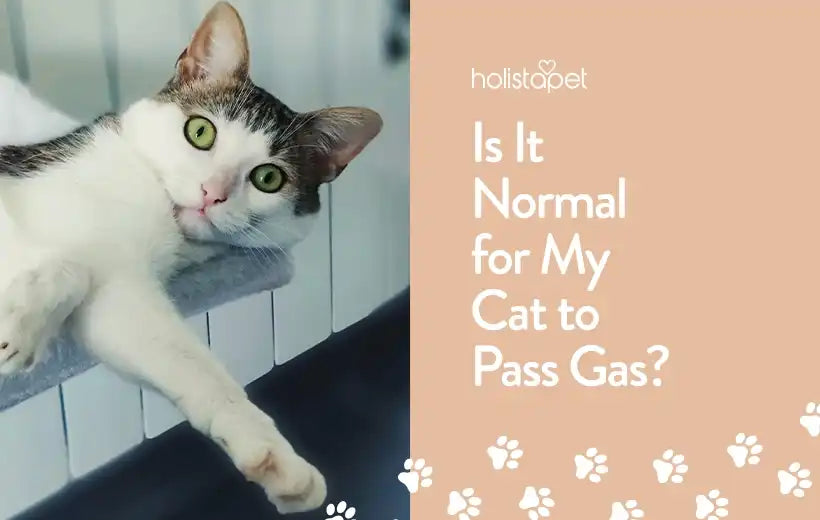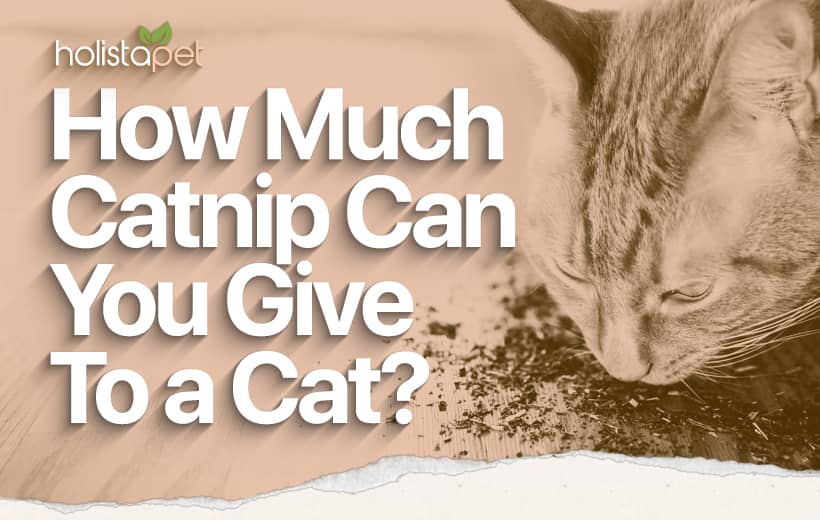A feline's wacky behavior often begs explanation. Why is my cat coughing? Why is it sneezing? How come my cat is retching, gagging, hurling up a hairball, and staring at me like it's plotting something? Cats may have personalities too mysterious for mankind to ever understand, but their biology has long been studied.
Coughing in cats could mean many things, and it can be overwhelming to navigate through all of the potential causes. Terms like asthma, heart disease, and respiratory infection can confuse and worry cat owners. Moreover, how can we tell a retch from a gag or an asthmatic cough from a hairball? Throughout this article, we'll go through all of these questions and more to ensure your cat gets the proper care it needs.
Is It Normal For My Cat to Cough?
It is not unheard of for cats to cough, but they generally don't do it as much as us. Occasional coughing in cats is normal, so there's no need to rush your kitty to the veterinarian at the first sign. Your pet's lungs can get irritated just like a human's, so the issue could be as simple as dust or fur that your cat is trying to expel. What's important is that you pay attention to the sounds your feline makes. If coughing, retching, hacking, or gagging becomes frequent, veterinary help is probably needed.
What Does a Cat Cough Sound Like?
Knowing that each cat is capable of producing its own unique noises, their cough will generally sound like that of a human (though small and rough), crossed with a short, hacking feline hiss. Wheezing might also be present in a cat's cough, but not always. A honking noise (think of a goose's honking) could be indicative of a tight collar. It is best to focus on frequency and whether your cat's cough is productive (producing fluid, phlegm, or other material), rather than attempt to diagnose your pet by sound alone.
A cough is the result of air being pushed out of the lungs in order to clear the airways. Gagging sounds are produced by the throat tightening and releasing in an attempt to clear something that's stuck. Retching is perhaps the easiest to identify, as it is often signified by dry-heaves and vomit. All three of these sounds may be produced when your feline is hacking up a hairball, so a cough-gag-retch combo could be no reason for alarm.
Felines will often stand with a wide-open mouth and extended neck to cough. Coughing paired with sneezing, wheezing, or weight loss may be emblematic of problems outside the respiratory tract. If your cat produces a hairball every once in a while, this is normal. When cats clean themselves, their tongues pull dead hair off of their body, which they occasionally regurgitate. However, because of all their cleaning, cats have developed digestive tracts suited to digesting hair.
A vet should be visited if hairballs appear more frequently than once or twice a year (regardless of hair length), or if your cat makes retching noises without producing a hairball. Moreover, if any of the aforementioned noises last multiple days, there could be an issue.

What Is Normal vs. Excessive Coughing In Cats?
A cough is not a problem, but rather a potential symptom of a problem. Your furry friend might just be clearing its throat (which is to say it might be ridding itself of irritation in the mucous membrane lining the trachea, bronchi, or bronchioles). So how do we know when the issue becomes excessive? Feline's don't usually cough as often as humans or even dogs, so if your cat's respiratory issues last for multiple days, this is considered excessive.
Still, it will aid your pet's recovery if you can provide a vet with details, rather than just a coughing cat. There are many different types of cat coughs, and though a veterinarian will be able to examine your pet's breathing and chest, they will not be able to force your cat to replicate the sound.
Pay attention to the noise your feline is making to prepare for a vet's questions. How frequent is the coughing? How long has the issue been affecting them? Is it productive? Is it a wet or a dry cough? Has the animal lost weight? Any additional symptoms you can provide the veterinarian with will help them and your pet!
Why Is My Cat Coughing?
When it comes to felines, the causes of coughing are numerous. Cats are sensitive to strong odors, as well as dust. Try to remove incense and smoke, clean your living area, and consider investing in an air purifier. The problem could also be as simple as a tight collar, so ensure your pet's neckband is not restricting its airways. If your cat continues to have problems after taking these measures, the issue likely goes beyond a tickled nose or throat.
A cough's sound can offer more insight into its cause. It's a good idea to record your cat coughing as soon as you hear it so as to give your veterinarian a better idea of what's bothering your pet. If your cat is coughing persistently, other factors might be at play. Next, we'll examine some of these feline health problems and their symptoms.
Common Causes of Coughing Cats:
Let's take a look at some causes of coughing in cats and the symptoms they might show:
- Lower respiratory infections are often indicated by wet, productive coughing. The exact type of lower respiratory problem is something your veterinarian can help you determine.
- Viral infections could be affecting your pet if it's sneezing in addition to coughing. Infections like feline herpesvirus or feline calicivirus require specific care, so consult with a specialist before moving forward.
- A parasite usually comes with weight loss or reduced appetite along with coughing. We'll cover worms a little further down this list, but other parasites include coccidia, giardia, and toxoplasma.
- Allergies will share similar symptoms with asthma in your feline. A recurring cough and wheezing could mean your pet has allergies. Many times skin and eye irritations accompany feline allergies.
- Feline asthma is present in 800,000 U.S. cats and may be treated with corticosteroids and/or bronchodilators. If your cat coughs constantly, your pet may have asthma. Other signs are a crouched, neck-extended position between hacks and wheezing. Feline asthma is commonly brought on by your cat inhaling allergens or other irritants. These causes include pollen, cologne or perfume, mold, dust from cat litter, and smoke. Though common, asthma that goes untreated can become life-threatening.
- Worms are common in felines and could be the reason your cat is coughing. Regardless of respiratory trouble, you should make sure your pet receives regular blood and fecal tests. Two common worm problems in cats are tapeworm or roundworm infections and are usually brought on by swallowing a flea or larvae. There are treatments for tapeworms, and curing your pet of roundworms is relatively safe and inexpensive. Investing in a flea collar or monthly flea care can minimize the chances of worm infection.
Concerning Causes of Coughing Cats:
To better understand any potential problems, let's dive into the more concerning causes of feline coughing:
- Histoplasmosis is a fungal lung infection caused by the inhalation of spores. Cats with this infection have a short, productive cough and show mild fever, depression, low appetite, and weight loss. While treatment for histoplasmosis is available, not all pets survive. 4-6 months of medication and treatment — including blood tests and X-rays — are necessary if your cat's lungs are infected.
- Pneumonia is lung inflammation signified by a deep cough and labored breathing. If your pet has pneumonia, it's inflamed airways are restricting the flow of oxygen. If your cat's tongue and gums are a grey or blue color, your pet is not receiving enough oxygen and should immediately be taken to the veterinarian. Additional symptoms can include lethargy and loss of appetite.
- Heartworms will damage a feline's lungs, causing a cough. Heartworms are less common in cats than in dogs, but prevention is always the best treatment. A parasitic worm called Dirofilaria immitis is the cause of heartworms and is transferred by mosquito bites. Heartworm disease is generally signified by an abnormal heart rate/rhythm in your coughing cat's chest. However, it may be hard to distinguish a heartworm disease cough from that of asthma or bronchitis, so bring your cat to a veterinarian before assuming the worst.

How Do I Stop My Cat From Coughing?
Having a pet is like having a roommate that is unable to clean up after itself, but that goes both ways. Your cat can't ask you not to smoke around it, or tell you the pollen buildup on the porch is causing its allergies to act up, or compliment the smell of your lavender incense sticks before politely asking you to light them in another room. As pet owners, we have to make educated guesses about what's causing our furry friends to feel sick and fix it as best we can.
Some house cleaning will go a long way to help your coughing cat. Additionally, keep smoke away from felines, as well as allergens if they're susceptible. Common cat allergens include dust, pollen, fleas, perfumes, and some cleaning materials with artificial fragrances. If a clean household and minimal exposure to allergens aren't calming your cat's lungs, veterinary help is advised.
Does your cat cough up hairballs from time to time? Try grooming and bathing them more often to help get rid of excess hair before they swallow it. Remember, every once in awhile hairballs can be a normal occurrence, especially with longhair breeds.
Related: Cat Hairball Home Remedies [Top 12 Tips]
When Should I Go To The Vet for a Coughing Cat?
Coughing is generally uncommon among cats, so it shouldn't take much before a trip to the vet is in order. If your cat is coughing up hairballs more than twice a year or if they can't regurgitate one when they try, you should take it to see the vet.
Additionally, if a cough lasts longer than two days, or respiratory issues recur every few weeks, consult an expert. The general amount of oxygen a cat is getting can be inferred by examining a cat's mouth. If its tongue and gums are a blue or grey color, your pet might not be receiving enough oxygen and should be taken to the veterinarian immediately.
Final Thoughts
We love our felines and want them to live long and happy lives. Humans and cats have had a storied past, dating back to the first pet kitty nearly 9,500 years ago. Over the years, the creatures have made quite an impression on us. From Stubbs, the orange tabby who served as mayor of an Alaskan town for 20 years, to Blackie, whose owner bequeathed $12.5 million to it, people will do a lot for their purring pals.
So if your cat starts to cough, gag, retch or otherwise hack, don't dismiss it. Listen to the sound of their cough and check to see if it's productive. Pay attention to their daily routine and remove allergens from your home. If a cough lasts longer than two days, take your pet to the veterinarian. The love and care you show for your pet won't go unnoticed, as millennia of cat-owners have proven to our feline friends that we'll do anything to look after them!






















![Why Is My Cat Coughing? [Identifying Causes & When to Be Concerned]](http://www.holistapet.com/cdn/shop/articles/HP_CAT-COUGHING-PREVENTION.webp?v=1686329244&width=1500)














Leave a comment
This site is protected by reCAPTCHA and the Google Privacy Policy and Terms of Service apply.